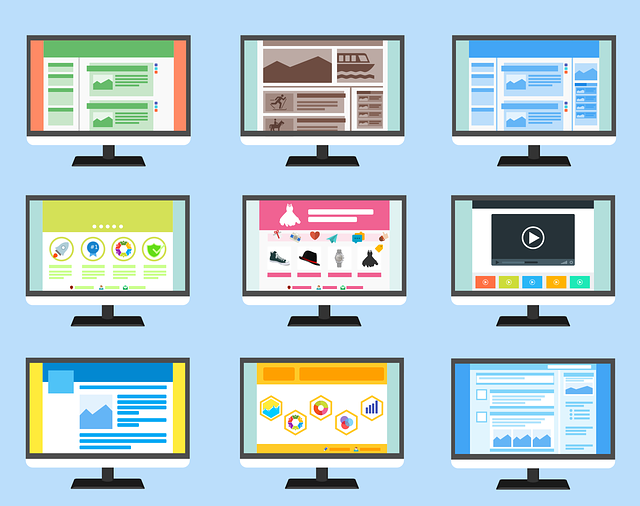Congratulations! Finally, you have decided to get your hands dirty on starting up your very own affiliate marketing business. You must be feeling extremely excited and eager to get things going on.
Here comes the million-dollar question. How to create a website for affiliate marketing?
If you haven’t done so, do check out my step-by-step guide on affiliate marketing for beginners.
Here are my 5 simple steps to create your own website.
Step 1: Proper Planning Before Creating a Website
Planned will help you accelerate quickly and efficiently when you have all your direction in place.

Before we rush through creating a website, you need to make sure that you have all these questions answered.
- Visualization: Have you got a visual plan on what the website is all about and how it looked like?
- Niche: What is the niche that you are in? Have you researched thoroughly about the niche?
- Monetizing: How are you going to monetizing your website? Do you have a few affiliate programs in mind that you wanted to join?
- Goals and Vision: What is your goals and vision for this website?
- Competitors: Who are your competitors? What can you do better than your competitors?
Without proper planning, you might be wasting your time and money on purchasing a domain and later found out that there is no way that you can make money out of it.
I know that you are now thinking of the 5 questions above.
Don’t just put everything in your mind. Please write it down with pen and paper or use mind mapping tools like Text2MindMap or Google Doc.
Move to the next step when you are done with this!
Step 2: Pick A Domain
A domain is described as an address to your house. When you put in the domain name to a web browser like Google Chrome or Safari, it will direct it to your website.
The first thing about creating a website is getting a domain. Here are some dos and don’ts while picking a domain.
Do Not Pick An Unconventional Extension
Domain comes with different extension such as .com, .org, .info, .co and maybe come country specific extension such as .co.uk, .com.au and .com.ca.
My advice is to stick to the domain name with a .com extension if possible. If it is not available, .org, .net, .co and country-specific extension are still fine.
Don’t go for something like .shop, .xyz, .club, .app. People tend to be more biased in websites that have funny extensions instead of the original ones.
Select The Perfect Name
There are no perfect names when it comes to a website. The domain needs to be unique and has never been used before.
There are two ways to select your “perfect” domain name.
- Brand Name: In this case, you can put whatever name you wanted. Just like my website, I use thisjay.com as it is short and easy to remember.
- Specific To Your Niche: Try to make it as related as possible to the niche that you are in. Make it easy to remember as well.
If you are building sites related to yoga, you can search for something like everythingaboutyoga.com, which will catch people’s attention and remember it.
4 Things To Avoid
There are a few things that you should avoid putting into your domain name.
- Avoid the “S” es: Your reader will be confused when you have websites like digitalcameras.com.
- Avoid Intentional Spelling Error: If treetop.com is taken, don’t try to register tre3top.com. People might confuse, and you might lose some customers to the other competitor.
- Avoid Special Character: Most of the special characters are not allowed in domain names.
“-” is still fine but try to avoid French characters (like é) as this will look a bit spammy! (Sorry, France, although you won the World Cup for 2018 ) 🙂 - Avoid the Same Character: Make sure that the last character of the word is not the same as the first character of the next word.
Some examples are ThatTeacherTeach.com or WaterReservoir.com.
Step 3: Choose A Content Management System
A content management system (CMS) is a series of automation in a system that helps you organize your assets and display them correctly.
Usually, deciding on the CMS comes after you choose a web hosting. However, I decided to put it ahead as it will impact our decision to select a suitable hosting.
What CMS Should I Use? 
There are so many CMS on the web, which is managed by billions of websites. Some of the well-known CMS are WordPress, Joomla, and Drupal.
I’m sure you heard of WordPress as this CMS is responsible for power up to 25% of the website in the world.
Most of the affiliate marketers use WordPress as their CMS tool to manage their website for the reasons below:
- Excellent supports: The community is huge, and you can find answers easily by just Googling.
- Free Themes: Never create a website on your own! Leverage the free theme in WordPress to help you get started.
- Plugins Availability: Plugins are pieces of software that you can install in WordPress to boost your productivity. There are thousands of plugins that may help you while developing your website.
- Constant Update: WordPress constantly updates their CMS to combat hackers or to release certain great features. You can rest assured that there will be someone that fix all the bugs.
- Easy To Use: The dashboard is so intuitive where you can easily navigate start creating your content assets right away.
While it is not a requirement to use WordPress for your affiliate website, you are free to explore Joomla and Drupal as an alternative. 🙂
Step 4: Choose a Web Hosting
Web hosting is where you store all your website assets where it is displayed when someone visits your website.
Great web hosting can increase your website’s conversion rate, while bad web hosting can break your website. You shouldn’t be taking it lightly.

You should look for a hosting that is capable of loading in less than 3 seconds.
How to Choose A Web Hosting?
If you have looked at some of the web hosting specifications, you will be extremely confused about which plan to choose.
Let me help you to simplified your selection process. Assuming that you are just starting up with your affiliate website.
- Hosting Type: Sharing hosting might be good enough to get started since the first few months will be practically no traffic. You can upgrade to VPS if your traffic increases.
- Bandwidth: This can come in terms of monthly visitors or TB for the hosting package. As a start, 10,000 monthly visitors should be sufficient for a year. Upgrade when your site grows.
- SSL Encryption: SSL Certification is crucial as it will give your reader an impression that this website is a legit and secure site.
- Backup: Most hosting will provide backup services to ensure that you won’t lose your content assets if anything goes wrong.
- RAM: Like a PC, RAM will store the recently used information in there. The higher the RAM, the larger the storage is. If data/webpage is not found in the RAM, the server then will look into the storage device.
- Storage Device: 99% of the website will not hit the maximum capacity that is provided. So it is a low priority.
These are the specification which you need to look for when purchasing your web hosting package. The order of the specification above indicates the priority.
If you are just starting up, you probably don’t want to invest too much in it.
Why Should You Get A Good Hosting?
Research shows that for every second that is added to the page load time, you will lose 20% of your potential user.
Imagine if you need to wait for 5 seconds to load a page; how likely will you push the back button and look for the next result? CERTAINLY!
Dedicated For WordPress Owner
This is why I put picking your CMS before choosing your hosting.
Due to the popularity of WordPress, many web hosting companies dedicate their time to build servers that cater to host WordPress sites.
Companies such as Bluehost, WPengine, and Site Ground provide Managed WordPress hosting for all their customers.
Some of the Pros and Cons of joining Managed WordPress Hosting are:
Pros:
- Super Fast: The whole server is configured and optimized based on WordPress. It will be expected to run much faster compared to other hosting types in the same class.
- Security is Taken Care: Since everyone uses WordPress, the server can be equipped with security features specifically for WordPress Sites.
- Automatic Updates: Whenever WordPress releases new updates, the updates will be performed by the hosting company.
- SSL Encryption: Most of them comes with SSL Encryption services
Cons:
- Controlled Environment: Some of the plugins you are familiar with might not be available due to slowing down the server. It is not a bad thing, though! 🙂
- Only For WordPress: You can’t host other than WordPress sites in this hosting. It might be a hassle for people that have multiple websites.
Step 5: Install WordPress!
Congratulations! When you reach this stage, you have made an excellent decision to purchase your domain and web hosting.
No matter which hosting that you purchase, WordPress is available for you to install. Some hosting will automatically install for you.
If you are using Wealthy Affiliate, there are only 4 steps to complete the installation process, as shown below.
- Register a Domain (Which you already did)
- Enter the Title of Your Website
- Pick a WordPress Theme!
That’s it. It is a simple process and may take up to 30 minutes to finish all the installation.
Have a cup of coffee and relax for now!
What’s Next?
After you have installed the site, you will be provided with a login name and password to enter the dashboard.
Your next task is to familiarise yourself with WordPress Dashboard on creating your content assets and how to design your website professionally.
Plugins
I highly recommend you install the following plugins to ease your content producing process:
- All In One SEO: Guide you on how to optimize your on-page SEO for every content that you posted.
- WPReview or WP Product Review: Review plugins that can produce beautiful star ratings for your website.
- TablePress: Create a table for displaying information on multiple items.
The 5 plugins that I recommend above are must-have plugins, and they are FREE to use.
Themes
I would recommend you to start with Free WordPress Theme. You don’t need to invest in a paid theme to make your first dollar in affiliate marketing.

When you start making money online, this is where you start to invest in a much better theme to increase the conversion rate and make it look more professional.
If you are looking for paid themes, Thrive and Studiopress has some great themes that are used by well know affiliate marketers.
Conclusion
Create a website is just the first step for affiliate marketing. You are pretty much set and on track to publishing your new website now.
The hardest part, content creation, has yet to come. Get yourself warm up and accept the next challenge that is about to come!
I hope you learn something new about how to create a website from scratch.
Leave a comment below if you have any questions or doubt!